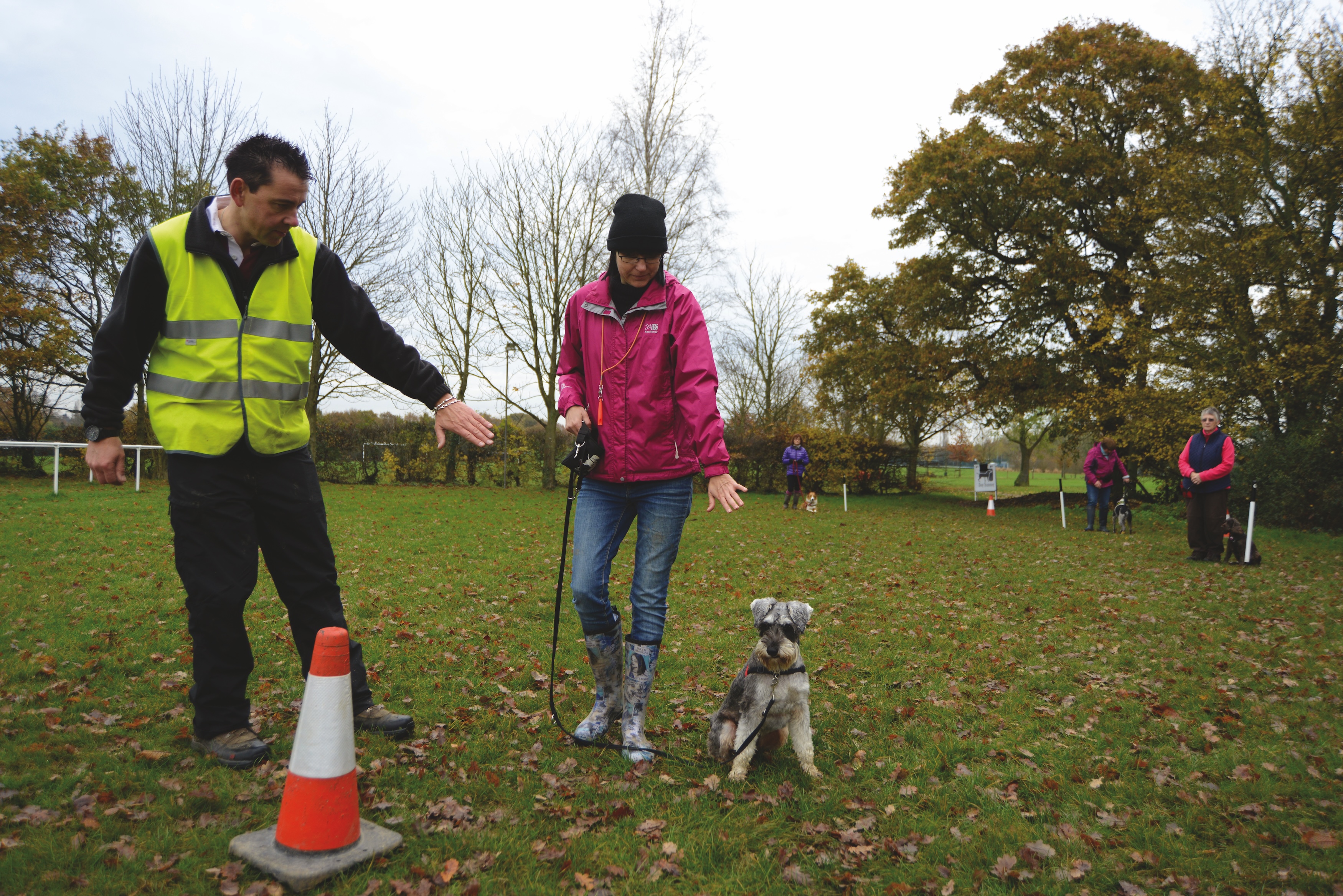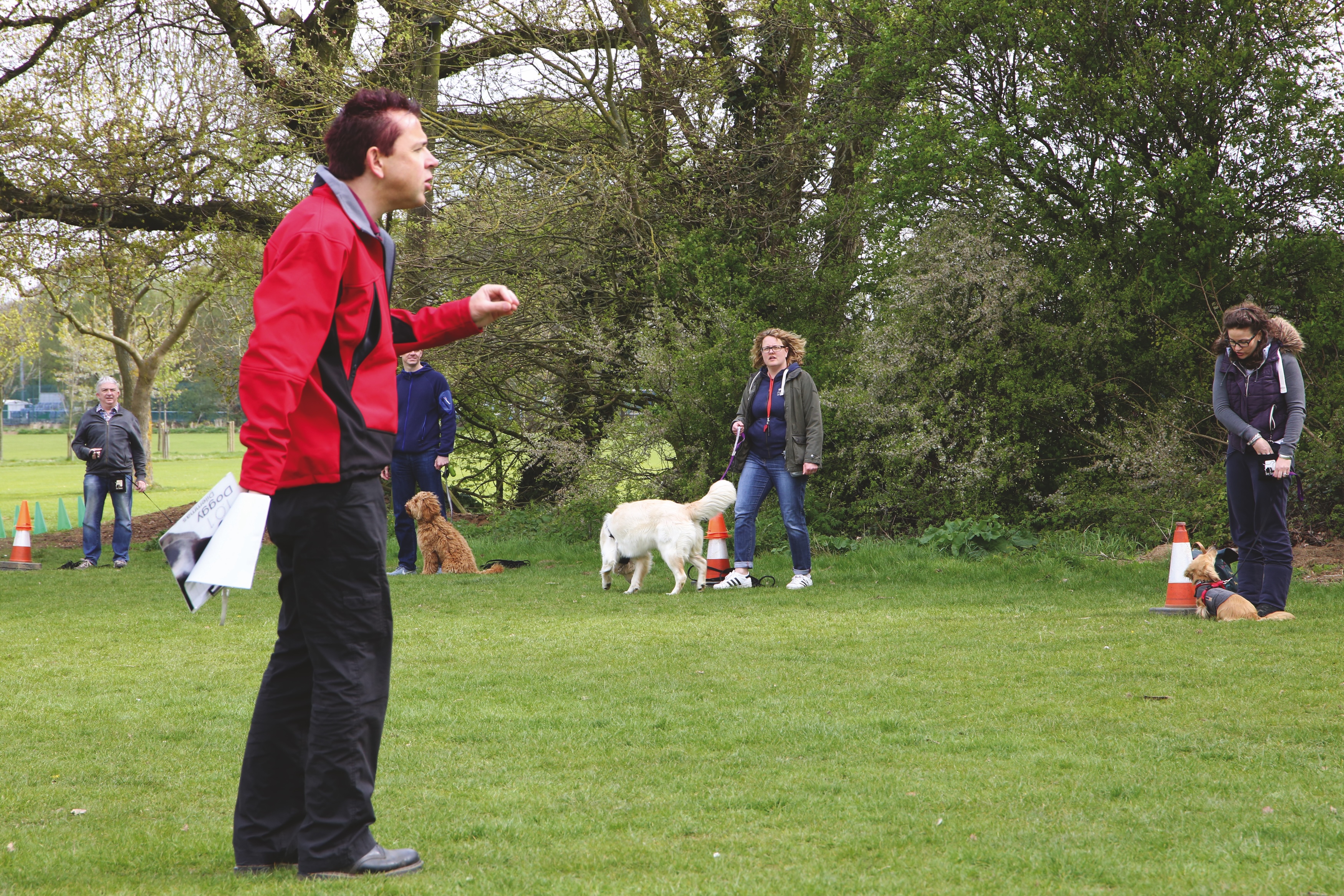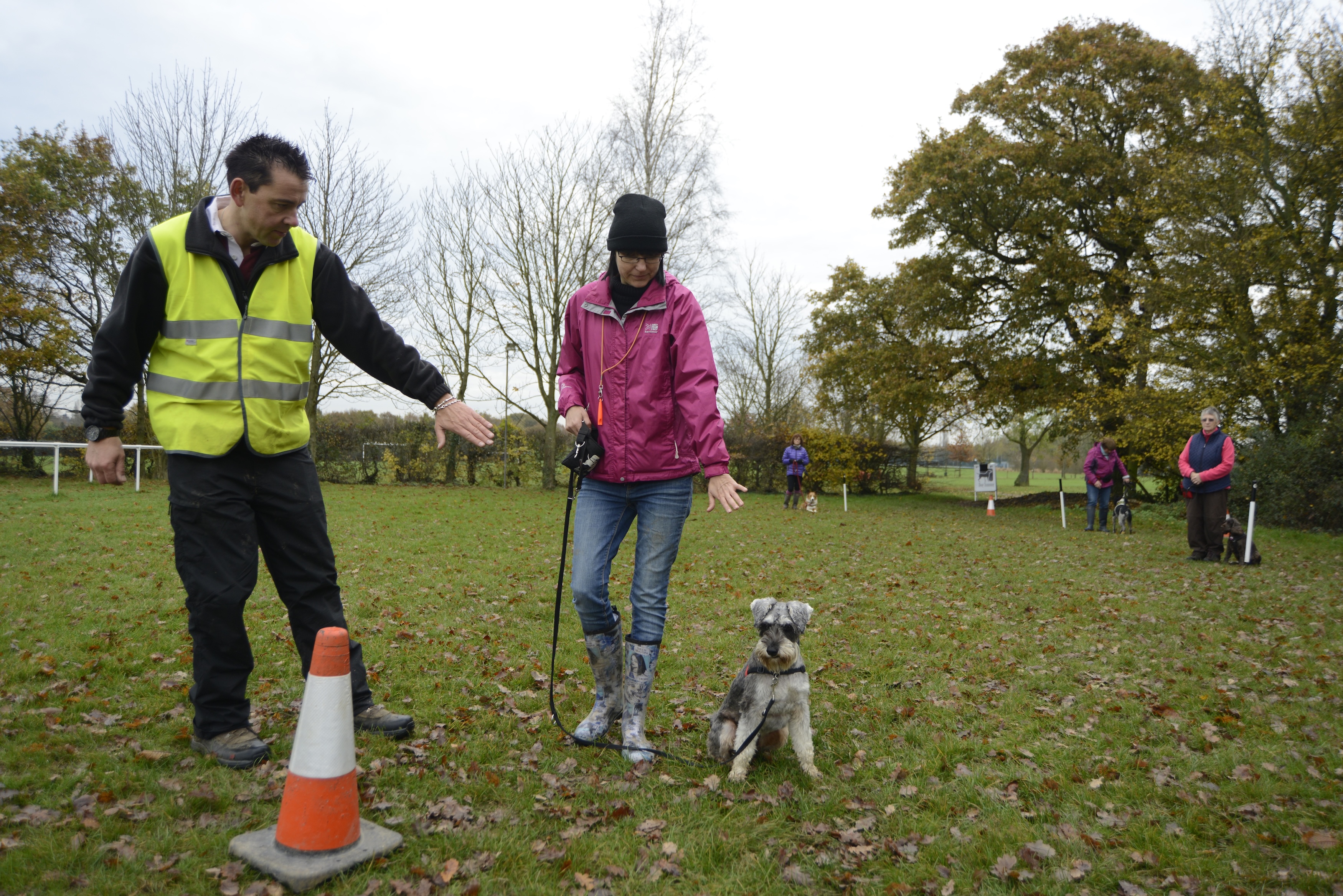In the second part of this series, dog trainer Tony Cruse shares some of the highs and lows of his career, plus tells us the key thing he teachers owners…
How rewarding is being a dog trainer?
It's exceptionally rewarding. To drive away from someone's house, knowing that the dog is now happier and is going to have a better life, you can't put money on that. It’s also knowing that the owners are happier, as well. You've left both species feeling better.
Changing people's perception of dog training is a big one because years ago it used to be shouting and jerking and stamping your feet and maybe even being physical. Dog training has changed. It’s rewarding for the dog and, it might be me, but you can almost see the dog thank you for it. As you leave, the dog looks up to you, almost like, ‘well, you understand me, you understand the situation.’
Can you give an example of one of the best cases you've worked on?
I turned up at a case. It was a massive crossbreed. The female owner had been crying and she was extremely upset. She was about to give the dog up for rehoming. She’d just given up all hope. She didn't particularly like the dog because she wasn't able to walk the dog. The dog was very powerful; pulling the end of the lead and her shoulder was aching.
She stopped walking the dog so the dog was getting more wound up. When you get a behavioural problem, people start to resent the dog, which is natural. It's not the dog's fault, obviously, but it's what tends to happened. You lose that bond pretty quickly. She'd already had a dog trainer around who just told her to kind of jerk the lead to the right, and that didn't work.
I managed to get in there, and this is unusual, but within 20 minutes of walking along the pavement outside the house, the dog was walking nicely. She was amazed and it was purely because we were actually rewarding the dog for that slack lead. Every time the lead was slack, the dog got a treat.
The dog figured out that if he pulled, we would stop walking and he's not going to go anywhere. In fact, it was better to hang around his owner because that's where the good stuff happens. I think that changed her life. It certainly changed the dog's life.
Driving away from that was really rewarding. The owner went on to go to my dog training classes and, in fact, she's still there. She's actually become a friend now.

What a lovely story! What’s the most difficult thing you’ve had to deal with?
There are two things. One specifically behaviourally is separation anxiety. That's a very hard case to address – not just for me, but you can ask my fellow trainers. The reason is because to help that dog feel good when he's on his own, you're not present. So, you can't be there to help and train the dog. It's an issue that we all know takes time.
The owner can't exactly train this issue and then go to work the next day. The minute you go to work for four hours, the dog's back to square one. With separation anxiety, it's a gradual process. In fact, some people have had to take a week off work in order to address it.
Personally, what I’ve found the difficult cases are whenever I get a multi-dog household and one dog is fighting with another dog. That’s a really tricky one because you've got the dynamics of the house involved. The dog that's fighting is not always the cause of the issue. That's the dog that always gets the blame, but it may well be one of the other dogs that's actually instigating that fight. You've got to address each dog and sometimes take each dog out the equation and then put them back in the equation.
On one case, we had to rehome one of the dogs. I think it was a four-dog household. We rehomed one, which obviously I didn’t want to have to do that. However, by rehoming one dog, you've then got four happy dogs. The family were unhappy. It was a horrible situation. The first time you visit these situations, you're driving home and it's quite upsetting.
What are the key things when you're teaching people to train their dogs?
It's reading the dogs, but you know what, it's the dog reading the human, as well.
One of the first things we teach puppies is eye contact. We want dogs to give the humans eye contact. If we stare at a dog, that can be intimidating. So, what you don't do is just stare at a dog. But, we want the dog to voluntarily look at the human’s eyes. Straight away when that occurs, you've got communication. Now, you can use your own body language to acquire behaviour. So, for example, hand signals for a sit, or opening your arms up wide for a recall cue.
The way we teach that is whenever the dog wants something, he has to give you eye contact first. Let's say you've got your dog's food bowl in your hand. They might be looking at the food bowl. They may be even barking at the food bowl. But the second they look at you in the eyes, you put the food bowl down. If the dog wants to go in the garden, you put your hand on the door handle. As soon as they look at you in the eye, say ‘good’ and you let them out. What starts happening, whenever the dog wants something, it gives you eye contact. That's the closest you can possibly get to a dog actually speaking.
The beauty of this is when the dog wants to run towards another dog, for example, which is not always great, he will actually ask you first. You’ve then got the option of saying, ‘Well, actually, no, we'll go this way.’ Or you can say, ‘Yes, good boy. Off you go.’ It might not always be the good stuff that he's asking for, but at least you've got that opportunity to change direction or give the dog something else to do.
Eye contact is paramount. You can read the dog, but we want the dog to read us. It also creates a bond.

Does being a dog trainer ever impact on the relationship you have with your own dogs? Is it ever a case of mixing business and pleasure?
It's certainly beneficial to have a dog. Unfortunately, I'm without a dog at the moment – I'm going to get one soon. It's beneficial to have a dog purely because you can practice some of your exercises on the dog before the class.
Say I'm teaching around the pole exercise. I can introduce it to my dog first and just get used to how I'm behaving, my hand signals, that kind of thing, before I pass them over to the customer. Motley, my previous dog, learned so many different things which were forwarded on.
It is beneficial to have a dog, but saying that, if you haven't got a dog, it doesn't make you a bad dog trainer. In fact, sometimes it can make you a better dog trainer because you're not distracted by your own dog. It's a bit like school teachers; not all school teachers have got kids, but are still very good school teachers. So, don't think if you're without a dog that you can't be a dog trainer because you can. In fact, you're going to have more time to put into your career, because everyone knows having your own dog can take up time.
I don't think being a dog trainer hinders you enjoying your own dog either, because you get home from work and you can enjoy your own dog. You can switch off and your dog's going to know everything anyway! Well, actually they can be mischievous – we like a little bit of mischief!
How's it been for you being working in the media as a dog trainer?
I wanted to get information across to as many people as possible. Not just my clients who are lovely, but also as many people as I could, and that involved media. I've done radio, I've worked with Your Dog magazine for over 10 years now, and I've got a couple of books out. It's about getting that message across to as many people as possible in the shortest way possible.
A lot of dog trainers know their stuff, but it's knowing how to put it across in bite size packages that people can understand. Working with magazines and doing radio stuff, it does get that positive message out. It shows that dog training isn't about jerking leads and pushing dogs into a sit. It's about training dogs ethically and in a fun way.

Do you get much feedback as a trainer and or is it a case of no news is good news?
It can be quite a lonely job because human nature is if anything goes wrong, you're the first one to know. If everything is right, it's often no news is good news, which is OK, and I understand that. I don’t get a lot of issues that are wrong, but trust me, if somebody's called their dog and it hasn't come back, they're the first to tell me! It'll always be the naughty stuff. I don't get to hear the good stories.
When you're driving your own business, what you can be worth doing is having feedback forms, either old school forms or some kind of online way to give feedback.
Last question, what would be your top tips for things you need to do on your journey to become a really successful dog trainer?
First thing is to study, get interested in behaviour. There are various books out there that you can read. Jean Donaldson’s The Culture Clash is an excellent book. I recommend reading that to start with. So, study and look for some courses. That's your theory side of things.
The other one is to go and volunteer at your local rescue. You won't make money doing it, but it's about just getting hands on experience and meeting hundreds of different kinds of dogs, which is priceless.







